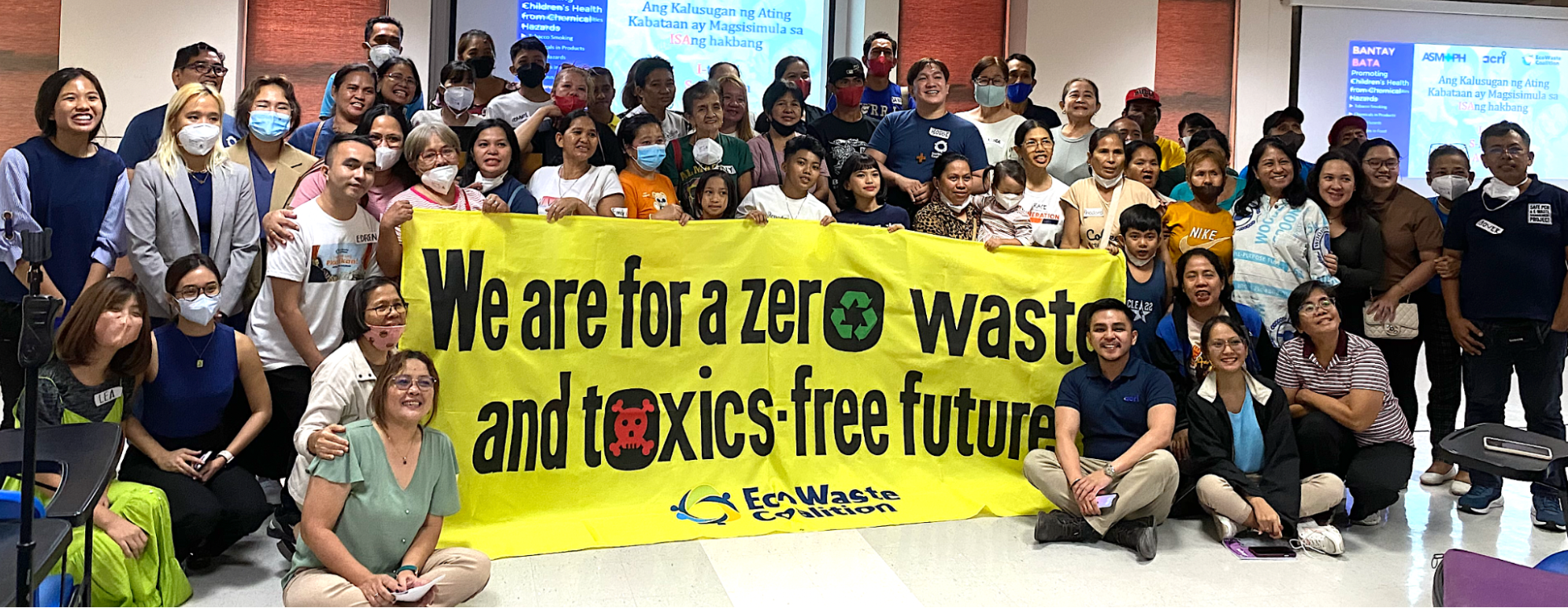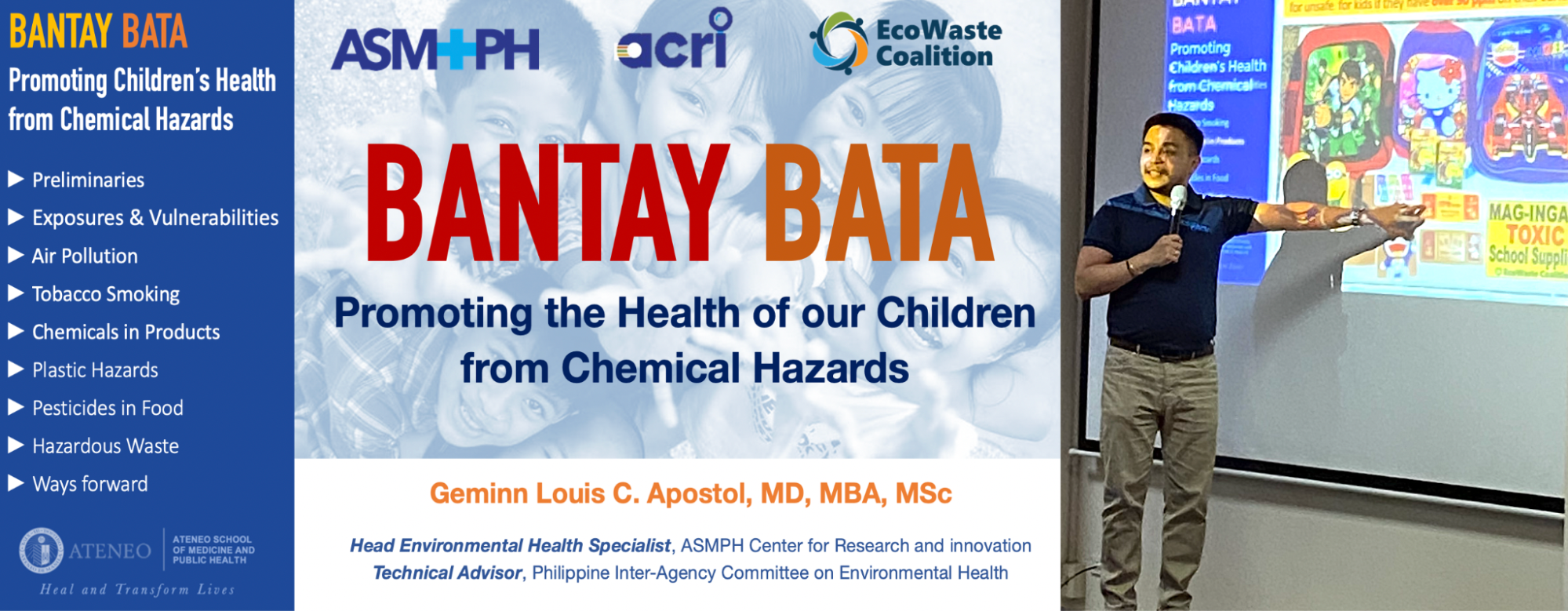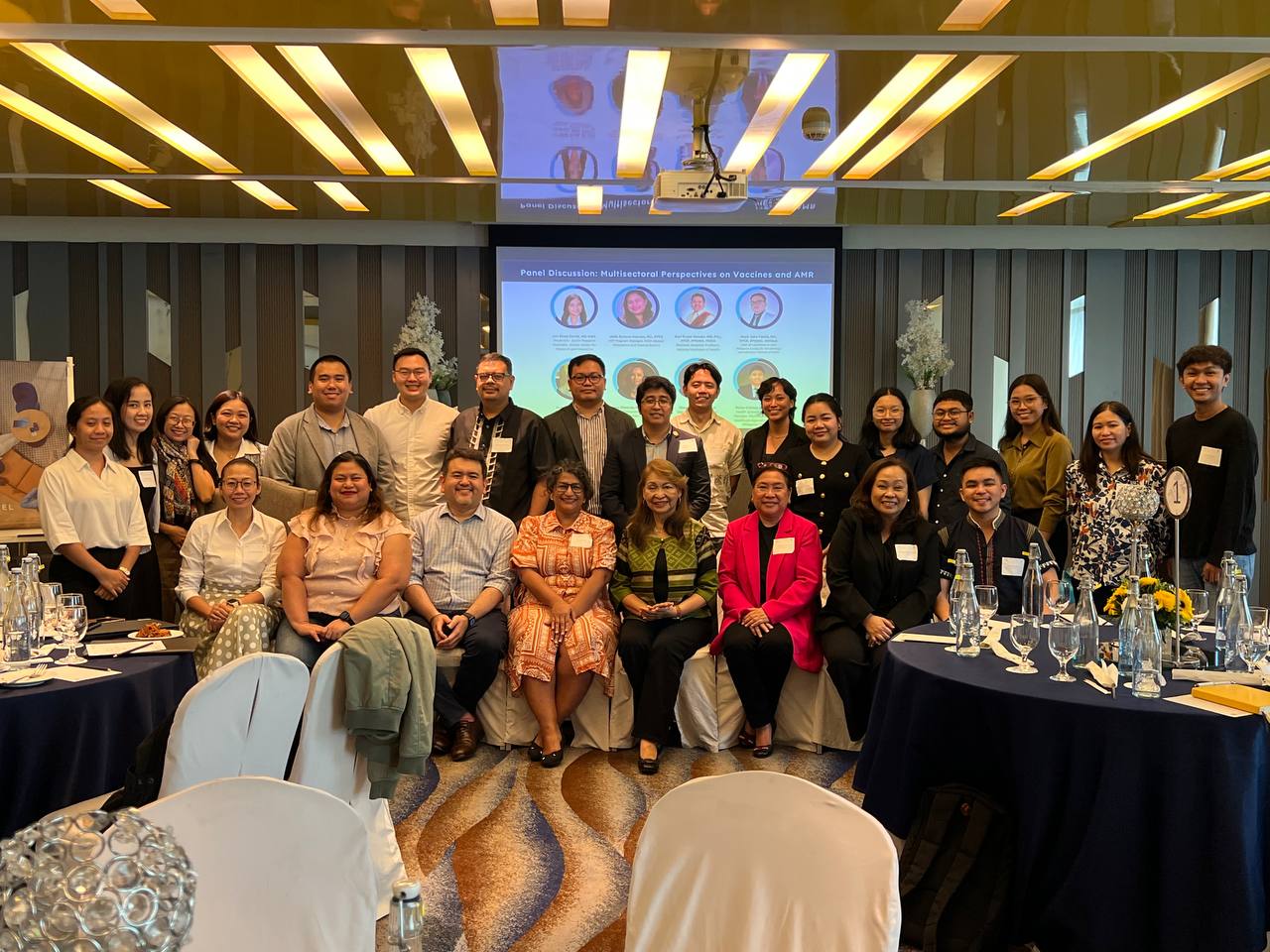
Toxic Truths Unveiled: ACRI and EcoWaste Coalition’s seminar on Day-to-Day Chemical Hazards
Together with EcoWaste Coalition, the ASMPH Center for Research and Innovation (ACRI) organized a seminar on the health risks of hazardous chemical wastes last 5 December 2023 (Tuesday) at the Multi-Purpose Hall (MPH), ASMPH. Facilitated by Mr. Manny Calonzo, an environmental advocate from EcoWaste Coalition, the activity was attended by at least 60 participants from various community-based organizations in Cavite, Tondo, Malabon, and Caloocan.

Bantay Bata: Promoting the Health of our Children from Chemical Hazards
Dr. Geminn Louis Apostol, head of ACRI’s Environmental Health Flagship Team, delved into the six (6) key environmental contaminants threatening children’s health — air pollution, tobacco smoking, chemicals in products, plastic hazards, pesticides in food, and hazardous waste. In particular, he explored the health risks and exposure pathways of the aforementioned hazards, accentuating its cumulative impact from early fetal life to late adulthood.

E-Wastes: Hazards and Health Effects
Conversely, Environmental Health Specialist, Dr. Sary Valenzuela, highlighted the hazards of electronic waste, emphasizing the persistence of heavy metals like lead, chromium, and mercury. Strategies for the prevention and management of e-waste were also captured in her report, such as the proper handling and disposal of e-waste, recycling, and monitoring of e-waste sites.
Interactive Learning: Grassroot Insights Minimizing Risks from Hazardous Chemicals
Acknowledging grassroots wisdom, Dr. Apostol spearheaded a dynamic session engaging participants in the exploration of their ISA commitments aimed at reducing health hazards posed by harmful chemicals, identifying their individual commitments to stop (Ititigil), initiate (Sisimulan), and which topics they feel they want to educate themselves further on (Aalamin).

This endeavor is part of the ongoing partnership between EcoWaste Coalition and the Ateneo Center for Research and Innovation, dedicated to heightening awareness of the threats and exposure to hazardous chemical wastes to the most vulnerable groups in the Philippines.
-

The Unseen Link: Vaccines and Antimicrobial Resistance in the Philippine Context
Antimicrobial resistance is already claiming lives, and the global pipeline for new antibiotics is shrinking. In August 2025, experts gathered to explore a critical question: Can vaccines become a frontline weapon against AMR? The science is clear—by preventing infections, vaccines reduce antibiotic use and slow resistance. But translating this into action means confronting data gaps, political barriers, and financing challenges. As one expert noted: "When we vaccinate, we reduce the frequency of these diseases. That means fewer antibiotics—used and misused." With no country in the Global South yet integrating vaccines systematically into AMR strategies, the Philippines has a chance to lead—if stakeholders can move from consensus to action.
-

Advancing vaccine uptake to mitigate antimicrobial resistance (AMR) in low and middle-income countries of South or South-East Asia
This project explores how strengthening vaccine uptake can serve as a key strategy to mitigate antimicrobial resistance (AMR) in the Philippines and across South and South-East Asia. By reducing the burden of vaccine-preventable diseases and the unnecessary use of antibiotics, the study aims to provide actionable recommendations for national and institutional stakeholders to better integrate vaccination initiatives into AMR control efforts, ultimately contributing to stronger, more resilient health systems.

